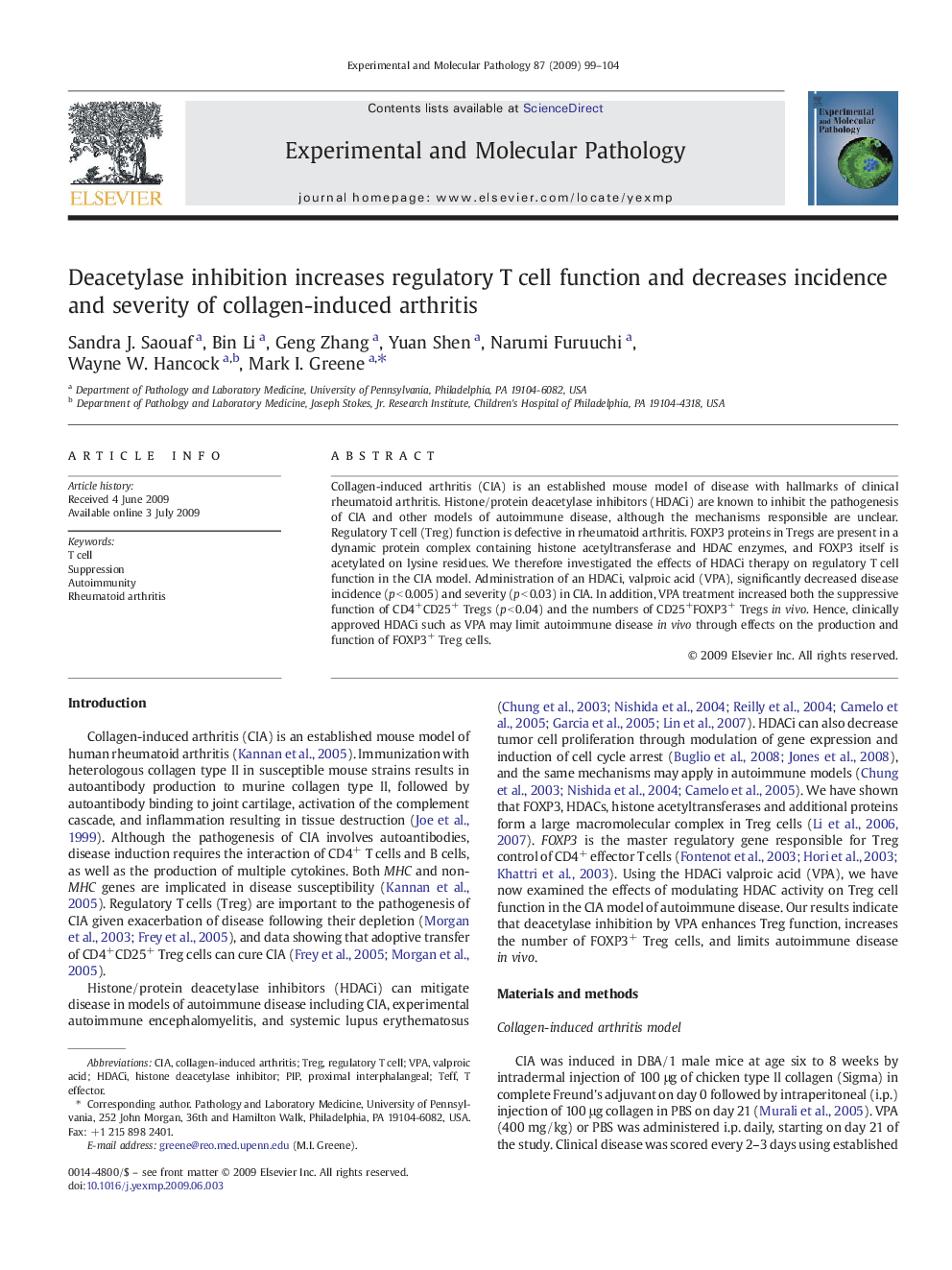| Article ID | Journal | Published Year | Pages | File Type |
|---|---|---|---|---|
| 2775669 | Experimental and Molecular Pathology | 2009 | 6 Pages |
Collagen-induced arthritis (CIA) is an established mouse model of disease with hallmarks of clinical rheumatoid arthritis. Histone/protein deacetylase inhibitors (HDACi) are known to inhibit the pathogenesis of CIA and other models of autoimmune disease, although the mechanisms responsible are unclear. Regulatory T cell (Treg) function is defective in rheumatoid arthritis. FOXP3 proteins in Tregs are present in a dynamic protein complex containing histone acetyltransferase and HDAC enzymes, and FOXP3 itself is acetylated on lysine residues. We therefore investigated the effects of HDACi therapy on regulatory T cell function in the CIA model. Administration of an HDACi, valproic acid (VPA), significantly decreased disease incidence (p < 0.005) and severity (p < 0.03) in CIA. In addition, VPA treatment increased both the suppressive function of CD4+CD25+ Tregs (p < 0.04) and the numbers of CD25+FOXP3+ Tregs in vivo. Hence, clinically approved HDACi such as VPA may limit autoimmune disease in vivo through effects on the production and function of FOXP3+ Treg cells.
